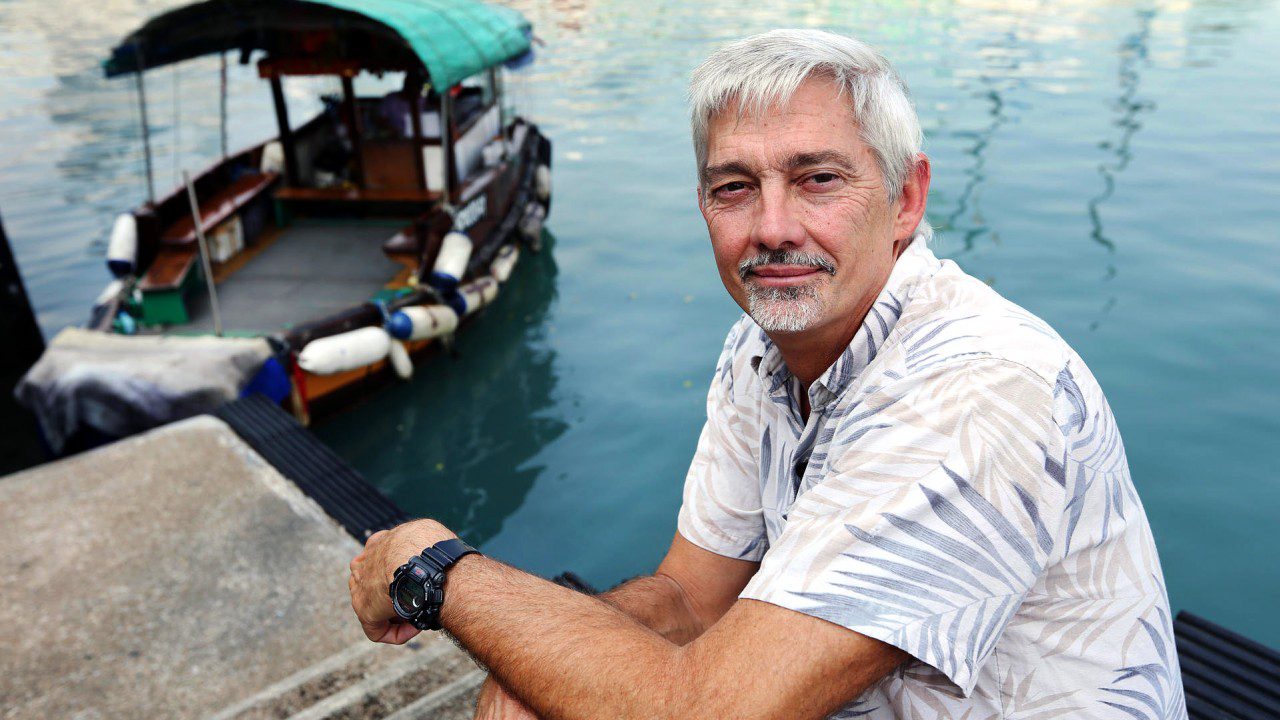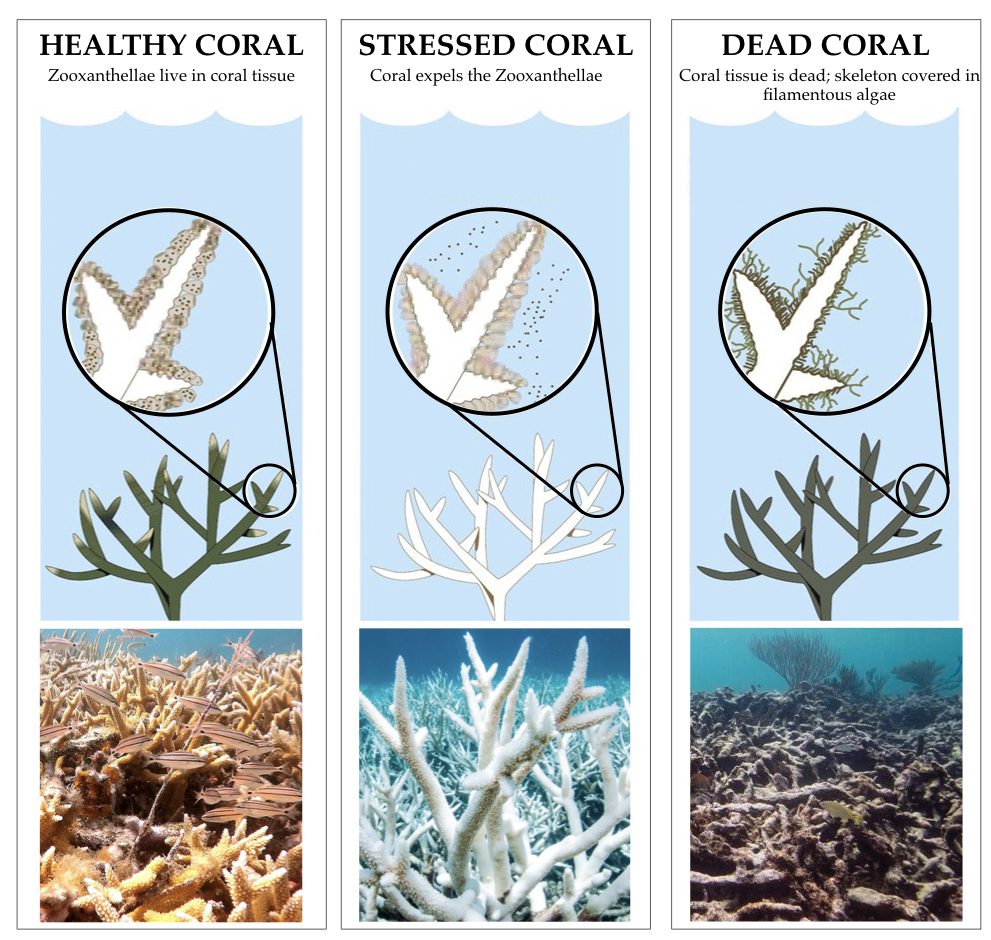Advancing Coral Conservation
Revive & Restore is pleased to announce that the first grant from our recently launched Catalyst Science Fund has been awarded to marine biologist Steve Palumbi’s laboratory at Stanford University’s Hopkins Marine Station.
The $100,000 research grant will enable the Palumbi team to investigate the genomic “stress trigger” that may cause corals to bleach as a result of warming ocean conditions. This catalytic science could be an essential step forward in understanding the large-scale bleaching of coral reefs and the potential to engineer genomic resilience to climate change.
When ocean water becomes too warm, the photosynthetic symbionts that provide the coral host with nutrients are expelled leading to high coral death rates.
As average sea surface temperatures around the world continue to increase, so too does the severity and extent of global bleaching events. More than two-thirds of the corals on the world’s largest reef, the 2000-mile Great Barrier Reef have already bleached. Bleaching events are expected to become more common as the ocean continues to warm. This impending crisis means that useful interventions are crucially needed.
The physiological consequences of coral bleaching are well studied, but scientists still do not understand the cellular response that produces bleaching – the bleaching trigger. Even though these mechanisms are poorly understood, perhaps one of the best tools for enhancing coral resilience to the effects of climate change will be manipulating the bleaching trigger itself.
Recent studies correlating bleaching with gene expression show that a good candidate for the stress trigger may be a cellular reaction known as the unfolded protein response, in which cellular stress prompts either the repair of cell damage or a cascade of reactions that ultimately lead to cell death. As the next step, experimental approaches that test these ideas are critical. Using pharmaceutical agents that block the unfolded protein response, Palumbi and his team will adapt novel techniques from cancer research to change specific parts of the unfolded protein response and determine whether these parts prevent or cause bleaching. If blocking the unfolded protein response also delays or halts bleaching, this research may focus the search for a genetic basis for coral resistance to climate change. If the unfolded protein response is found not to be the cause of coral bleaching, scientists can then examine other promising pathways.
This research grant has been made possible through the generosity of two key Revive & Restore donors: earlier this year, biotech company Promega was instrumental in launching our Catalyst Science Fund with a commitment of $3 million dollars; in addition, Chris Cox and Visra Vichit-Vadakan contributed funds to the Catalyst Fund for research into coral resilience.
About Steve Palumi
Steve Palumbi has been working on coral reefs since his senior year of college and has published more than 200 papers on aspects of marine genetics, evolution, conservation and policy. He is a member of the U.S. National Academy of Sciences, a Reviewing Editor of Science magazine, and a board member of National Geographic’s Committee on Research and Exploration.
- Learn more about the Palumbi Lab at Stanford University here.





